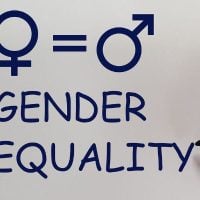Economic empowerment is a cornerstone of gender equality and a vital component in the fight against poverty. When women have access to financial resources, they can make decisions that improve their lives and the lives of their families. This empowerment can take many forms, including access to credit, training in entrepreneurship, and opportunities for employment.
For instance, microfinance initiatives have proven effective in providing women with the capital needed to start small businesses. Organizations like Grameen Bank have demonstrated that when women are given financial resources, they not only invest in their businesses but also contribute to their communities’ economic development. Moreover, creating supportive environments for women in the workplace is essential.
Companies that implement family-friendly policies, such as flexible working hours and parental leave, can significantly enhance women’s participation in the workforce. For example, in countries like Sweden, where such policies are prevalent, women’s labor force participation rates are among the highest globally. By advocating for these policies and supporting women-led businesses, NGOs can play a crucial role in fostering economic independence among women.
This not only uplifts individual women but also strengthens entire communities, as empowered women tend to reinvest their earnings into health, education, and welfare.
Promoting Women’s Leadership and Political Participation
Promoting women’s leadership and political participation is essential for achieving gender equality and ensuring that women’s voices are heard in decision-making processes. Women bring unique perspectives and experiences that can lead to more inclusive and effective governance. However, barriers such as societal norms, lack of access to education, and insufficient support systems often hinder women’s political engagement.
NGOs can address these challenges by implementing programs that encourage women to take on leadership roles within their communities and beyond. One successful example is the “Women in Leadership” initiative launched by various NGOs worldwide, which focuses on training women in public speaking, negotiation skills, and political advocacy. These programs not only equip women with the necessary skills but also create networks of support among female leaders.
In Rwanda, for instance, the government has made significant strides in increasing women’s representation in politics, with women holding over 60% of parliamentary seats. This shift has been supported by various NGOs that have worked tirelessly to empower women through education and mentorship programs. By fostering a culture of female leadership, NGOs can help dismantle the barriers that prevent women from participating fully in political life.
Advancing Women’s Rights and Gender Equality
Advancing women’s rights and gender equality requires a multifaceted approach that addresses systemic inequalities and promotes legal reforms. NGOs play a pivotal role in advocating for policies that protect women’s rights and ensure equal opportunities in all spheres of life. This includes lobbying for laws that address issues such as pay equity, reproductive rights, and protection against discrimination.
For example, organizations like UN Women have been instrumental in pushing for international agreements that promote gender equality and empower women globally. In addition to advocacy, grassroots movements are crucial for advancing women’s rights. Local NGOs often work directly with communities to raise awareness about gender-based discrimination and mobilize support for women’s rights initiatives.
A notable example is the “HeForShe” campaign, which encourages men to advocate for gender equality alongside women. By engaging men as allies in the fight for women’s rights, NGOs can create a more inclusive movement that challenges traditional gender roles and promotes equality at all levels of society.
Supporting Women’s Health and Reproductive Rights
Women’s health is a critical aspect of gender equality, as it directly impacts women’s ability to participate fully in society. Access to healthcare services, including reproductive health care, is essential for empowering women and ensuring their well-being. NGOs can play a vital role in advocating for comprehensive healthcare services that address the unique needs of women.
This includes promoting access to family planning services, maternal health care, and education about reproductive rights. Real-world examples illustrate the impact of such initiatives. In countries like Bangladesh, NGOs have successfully implemented community-based health programs that provide women with access to essential health services.
These programs not only improve women’s health outcomes but also empower them to make informed decisions about their bodies and families. Furthermore, by raising awareness about reproductive rights and advocating for policy changes, NGOs can help dismantle the barriers that prevent women from accessing necessary healthcare services.
Addressing Violence Against Women
Violence against women remains a pervasive issue worldwide, affecting millions of women regardless of age, race, or socioeconomic status. Addressing this violence requires a comprehensive approach that includes prevention, protection, and support for survivors. NGOs play a crucial role in raising awareness about domestic violence, sexual assault, and other forms of gender-based violence while providing essential services to those affected.
One effective strategy is the establishment of safe spaces for survivors of violence. Organizations like Refuge in the UK provide shelter and support services for women fleeing abusive situations. These safe havens not only offer immediate protection but also connect survivors with resources such as counseling and legal assistance.
Additionally, community education programs aimed at changing societal attitudes towards violence against women are essential for long-term change. By engaging men and boys in discussions about consent and respect, NGOs can help foster a culture that rejects violence and promotes healthy relationships.
Fostering Women’s Education and Skills Development
Education is one of the most powerful tools for empowering women and promoting gender equality. When girls have access to quality education, they are more likely to become economically independent, participate in decision-making processes, and contribute positively to their communities. NGOs play a vital role in advocating for girls’ education and implementing programs that address barriers to schooling.
For instance, initiatives like the “Girl Rising” campaign highlight the importance of educating girls by sharing stories of young women who have overcome obstacles to pursue their education. These narratives inspire communities to prioritize girls’ education and challenge cultural norms that may hinder their access to schooling. Additionally, vocational training programs offered by NGOs equip women with practical skills that enhance their employability and economic independence.
In countries like India, organizations have successfully implemented skill development programs that focus on areas such as technology and entrepreneurship, enabling women to thrive in competitive job markets. In conclusion, empowering women economically, promoting their leadership roles, advancing their rights, supporting their health needs, addressing violence against them, and fostering their education are interconnected strategies essential for achieving gender equality. NGOs play a pivotal role in implementing these strategies through advocacy, community engagement, and direct support services.
By working collaboratively with governments, communities, and other stakeholders, NGOs can create lasting change that uplifts women and promotes a more equitable society for all.









































